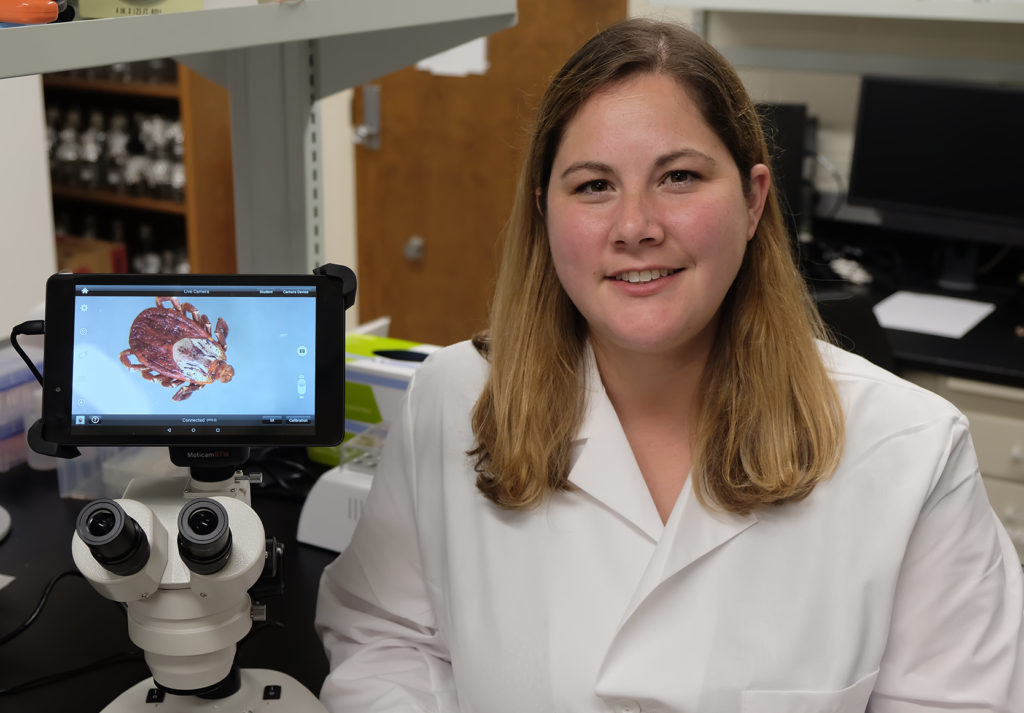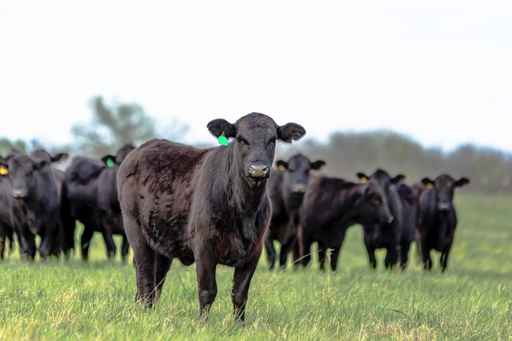
Kansas State University academics will be researching ways to combat an infectious cattle blood disease thanks to a million dollar U.S. Department of Agriculture grant, according to K-State Today.
The USDA’s nearly $1.2 million grant will support an interdisciplinary team in studying ways to prevent the parasitic cause of bovine anaplasmosis — also known as yellow-bag or yellow-fever.
The bovine blood disease is the result of parasites known as Anaplasma marginale, often contracted by tick bites, and can lead to death — more often in older cattle. Other symptoms include fever, weight loss, anemia, lack of coordination, breathlessness, jaundice or abortion.
The research team is made up of experts in molecular biology, clinical pharmacology, livestock health, antimicrobial resistance in addition to vector-borne diseases, such as KSU diagnostic medicine and pathobiology assistant professor and team leader Kathryn Reif.
“With these combined skill sets, our team is uniquely qualified to conduct the proposed program of research,” says Reif. “Together, we have the capability to answer these innovative research questions and communicate the outcomes effectively to the scientific community and stakeholders in the livestock industry.”
Reif says their research focuses on optimizing antimicrobial treatments to control active infections by the parasites, but that multiple different strains of the infections are active across the U.S.
“We are using a combination of A. marginale strains, some of which we recently isolated from Kansas cattle herds, to help determine how strains differ in their susceptibility to tetracycline antimicrobials, specifically chlortetracycline, the most common antimicrobial used to control anaplasmosis,” Reif tells K-State Today. “We hope that by looking at three different chlortetracycline treatment protocols for cattle, we can provide practical recommendations for the Food and Drug Administration and ultimately for cattle producers toward controlling this disease.”
Reif says that there are cattle producers across the nation concerned that the anaplasmosis treatment currently endorsed by the FDA does not do enough to control outbreaks. She adds that there is no anaplasmosis vaccine approved by the USDA.
“And the experimental vaccine, available in some states, does not prevent infection,” says Reif. “Efficacy concerns over the current anaplasmosis control measures underscore the need for updated science-based recommendations to help cattle producers manage this disease.”
Reif and fellow researchers will host an outreach event featuring multiple speakers and a panel discussing best practices and strategies for managing anaplasmosis. The event will be May 20 in the Hilton Garden Inn.



